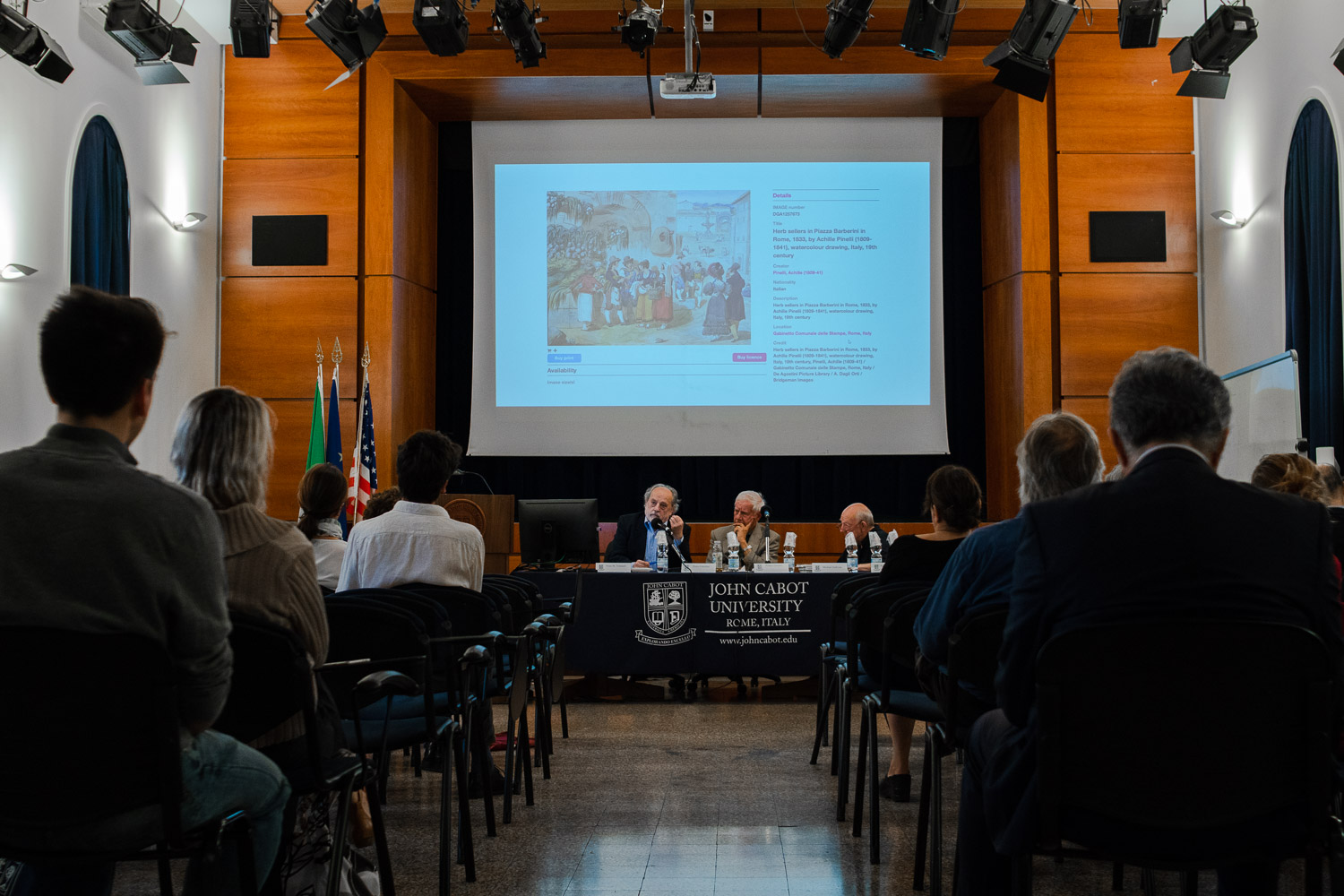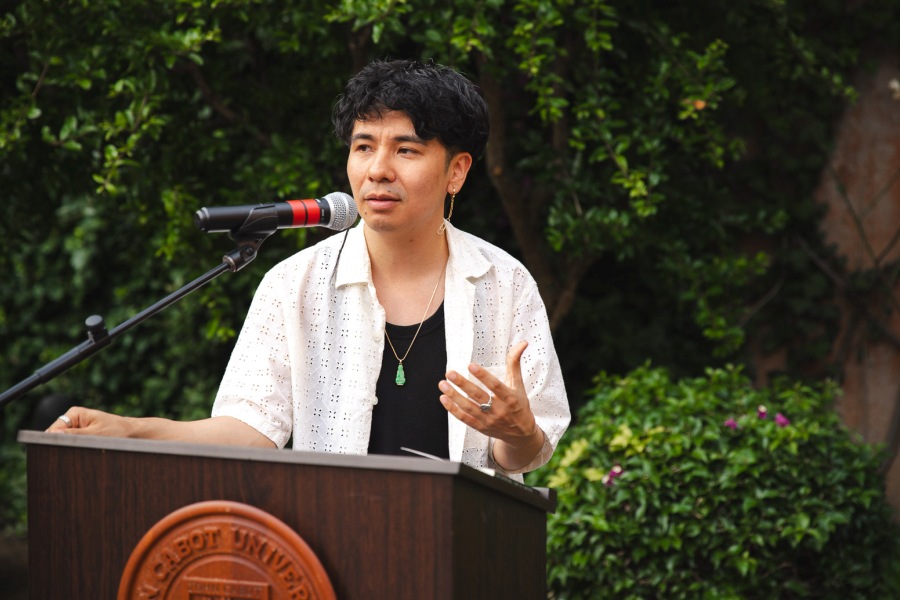Giuseppe Gioachino Belli’s Poetry: A Critical Introduction from Belli’s Sonnets
John Cabot University’s Department of Modern Languages and Literature and the Department of English Language and Literature sponsored an evening dedicated to Roman poet Giuseppe Gioachino Belli on September 30, 2019.
The guest speakers were Professor Pietro Gibellini (Università Ca’ Foscari in Venice), a leading expert on Giuseppe Gioachino Belli, Franco Onorati, journalist and member of the ‘Centro Studi Giuseppe Gioachino Belli’, and translator Michael Sullivan, who has translated a wide selection of Belli’s sonnets. JCU Professor Federica Capoferri introduced the speakers and gave a brief overview of Professor Gibellini’s work. Professor Anna Mauceri Trimnell also joined the discussion.
Professor Gibellini explained that for a long time there was a prejudice among critics of Belli’s work because of his use of dialect, which was considered to be inferior to Italian. Among his influences was the Milanese poet Carlo Porta, who wrote in his city’s dialect. Some of Porta’s sonnets served as models for Belli, however, one difference between the two is that unlike Romanesco, Milanese was spoken by the aristocracy as well, and had a tradition of being used in written form, whereas Romanesco merely belonged to the oral tradition and was distinctive of the lower classes. Belli’s sonnets are a testimony of the social, psychological and linguistic reality of the common people of Rome.
According to Professor Gibellini, Belli’s work could be ascribed, along with Alessandro Manzoni, Giacomo Leopardi and Carlo Porta, to Italian Romanticism, which was more concerned with the social and political aspects of society rather than the individual and irrational traits of Northern Europe’s Romanticism. Belli was interested in recording and documenting the culture and language of the lower classes, while maintaining a critical view. He is also often thought of as a realist poet, because he represented the everyday life of common people and because he wrote his sonnets in the same language that they spoke.
In the translations, Sullivan used archaic English to best render Belli’s style and tone, and he revealed that the linguistic variety that he chooses changes based on the character’s traits.
Following the talk, Franco Onorati reads some sonnets in Romanesco, Michael Sullivan read his English translations, and Professor Gibellini added some observations and comments.
L’incisciature, which Sullivan translated to ‘Squeezing the Juice’, explicitly describes the sexual encounter of a man and a woman.
Li soprani der monno vecchio, or ‘The Old Time Monarchs’, is about a king claiming his superiority over his subjects.
Er confessore, or ‘The Confessor’, is a bawdy dialogue between a priest and a woman confessing her sins.
Li du’ ggener’ umani, or ‘The Two Yuman Races’, highlights the differences between the aristocracy and the plebs.
La padrona bisbetica, translated as ‘The Bitchy Mistress’, is about a woman who likes to gamble and who mistreats everyone in her household when she loses.
Professor Capoferri reinforced the idea of Belli as a poet who wrote for a future audience underlining his legacy in 20th century Italian literature and even more cinema, and mentioned how one of her students rightly noticed similarities between Belli’s and Pasolini’s Rome.







